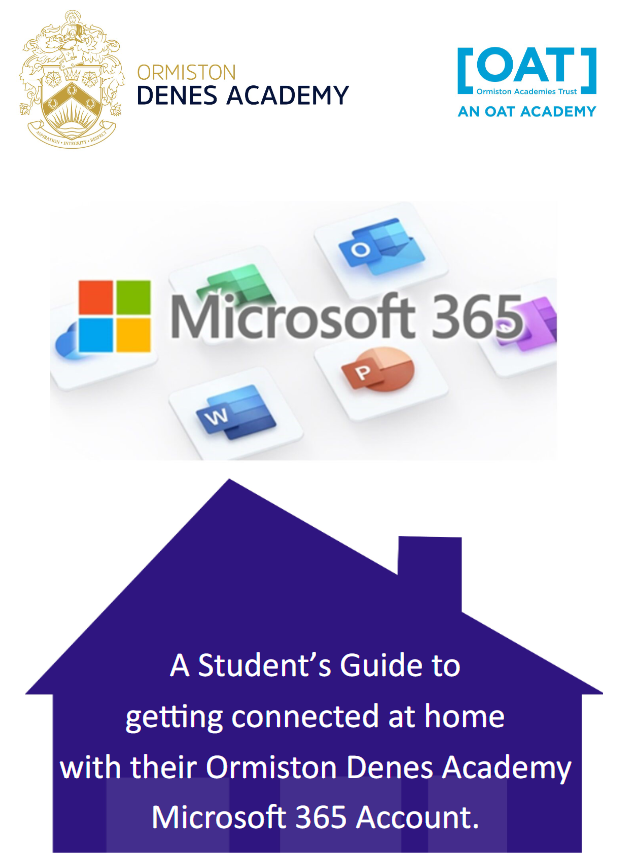Home Learning
Home Learning
At Ormiston Denes Academy, we believe that home learning has a huge impact on supporting students’ attainment; through allowing students to take responsibility over reinforcing what is being taught in the classroom. Our aspiration is for all students to have regular opportunities to practice, rehearse and overlearn the knowledge and skills that they are given in lessons. We want to instil in students a determination to succeed. As a result of this, our home learning approach is twofold:
Independent Study
Students are provided with Knowledge Organisers for their subjects and are given sections to revise or learn in preparation for regular knowledge recall tests. This allows students to regularly practice recalling information from their long term memory into their working memory – making it more readily available to them when they need it. Teachers will direct students to areas of the Knowledge Organisers to study, using our Denes Desirables. Knowledge recall tests may be sat in a variety of ways either, on mini-whiteboards, in exercise books or on test sheets. These will also be assessed in a variety of ways including, potentially, teacher, peer or self. The focus of this home learning is on the study and on the recall practice, which allows students to deep learn the knowledge they need for their age and stage.
Rehearsal Activities
In addition to independent study, some teachers will set students rehearsal activities. These may be in the form of practice tasks which supplement those given in class, timed writing activities to give students rehearsal of longer written responses, or creative tasks which reinforce knowledge and skills. The amount, frequency and nature of these tasks will be based on teacher’s professional judgement – as will the assessment of these. Teacher’s judgement will be based on students’ levels of attainment, areas for development and the nature of the subject area.
All home learning set will be made visible to you through the student planner, where students will record the tasks and any deadlines set. Below you can access a variety of Knowledge Organisers. If students regularly miss deadlines, they may be requested to attend our after-school Period 6 Study Hall, to catch up in a supportive and focussed environment.
Please support us in encouraging our young people to become independent, resilient and determined learners.
Homework and independent revision frequency
| Year | Subject homework time guidance | Weekly | Fortnightly | Half termly |
|---|---|---|---|---|
| 7 | 40 min per weeknight minimum or, if no homework has been set, 20 min independent revision using knowledge organiser and 20 min reading for pleasure | Mathematics Science English | Modern Foreign Languages Art & Design Geography History RE | Drama Music ICT Technology |
| 8 | 50 min per weeknight minimum or, if no homework has been set, 25 min independent revision using knowledge organiser and 25 min reading for pleasure | Mathematics Science English | Modern Foreign Languages Art & Design Geography History RE | Drama Music ICT Technology |
| 9 | 60 min per weeknight minimum or, if no homework has been set, 30min independent revision using knowledge organiser and 30 min reading for pleasure | Mathematics Science English | Modern Foreign Languages Art & Design Geography History RE | Drama Music ICT Technology |
| Year | Subject homework time guidance | Weekly | Fortnightly minimum |
|---|---|---|---|
| 10 | 75 min per weeknight minimum or, if no homework has been set, if no homework due, 75 min independent revision using knowledge organiser | Mathematics Science English | Option 1 Option 2 Option 3 Option 4 |
| 11 | 90 min per weeknight minimum or, if no homework has been set, if no homework due, 90 min independent revision using knowledge organiser | Mathematics Science English | Option 1 Option 2 Option 3 Option 4 |
